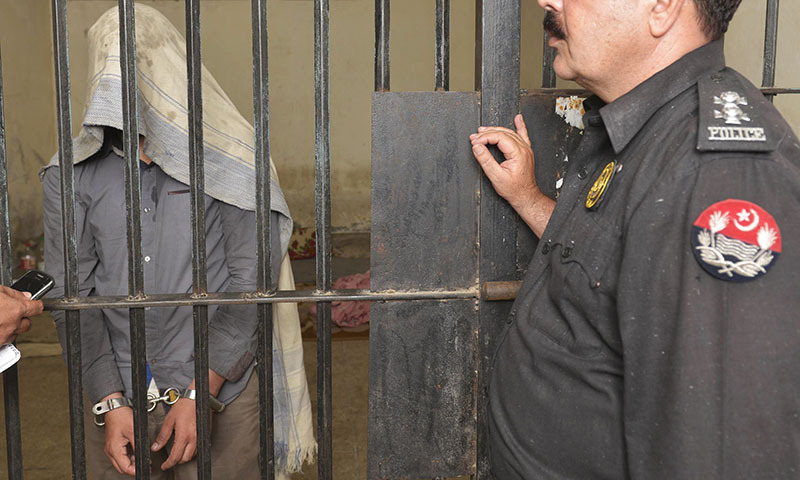By: Mahar Murrawat Hussain
Thana culture’ is a term used to refer to the non-friendly attitude of police officials and a below-par treatment they usually mete out to citizens, as and when a citizen comes into interaction with police either by visiting police station or while travelling on a road. The term has so widely been discussed as it has become a buzzword now. Over time, several efforts have been made to reform this infamous policing style. 21 reports on recommendation have been presented so far by different commissions and committees. But to our chagrin, the notorious Thana Culture still holds, and all the efforts and measures so introduced largely went up in the smoke.
The questions remain: why these reports and recommendations have not proved equal to the task; why all measures introduced so far fallen flat. These questions merit to be answered first before moving on further.
For one, all those efforts failed to yield results because those were only focused on symptomatic treatment without addressing the root cause of the malaise. The much-touted and mammoth exercise of changing the uniform of Punjab Police is a case in point, of which nothing of substance came out save proving a drain on resources. Secondly, people entrusted with the task of proposing a plausible reform agenda had had little acquaintance with ground realities. Hence, they proposed some measures that look good on paper and also struck a chord in public but had nothing to do with the real problem. The third and rather most significant reason in this regard is policymakers’ aversion to taking real stakeholders into a loop and their penchant for imposing reforms to get public traction.
Our failure to bring about any positive change in policing style is down to policymakers’ fancy to just refurbish the façade and as such always misdiagnose what ails policing system of Pakistan. To root out this menace, there is a dire need to understand factors that contribute to the problem. To begin with, the long working hours combined with few weekly and monthly offs characterize the lives of police personnel. The absence of time for recreational and other leisure activities adversely affects the psychological and mental health of police personnel, leaving them exasperated and frustrated. The emotional well-being and psychological stability of personnel are critical to their behaviour and attitude. Though bad behaviour of police officials cannot be justified by any means yet we need to come to terms with the fact that when a police officer is required to be on duty 24 hours a day, the exasperation spawned out of sleeplessness and restlessness is bound to come out.
The other issue that besets the force is an acute dearth of requisite resources and finances. This has a direct bearing upon the tendency of police to either not to register the first information report (Fir) or delay it. Since the investigation of cognizable offence entails not only adequate finances but also other technical resources, unavailability of these makes it hard for police to conclude an investigation, especially cases relating to crimes against property including robbery, dacoity, theft, and snatching involving unknown accused. Unresolved cases reflect poorly on the performance of the concerned station house officer (SHO), thus inviting wrath of high-ups. To avoid this scenario, police officials tend to find safe refuge in the non-registration of FIR.
Moreover, police personnel stationed at Thana hardly have access to adequate accommodation, potable water, and messing facilities. They are supposed to arrange all this from their meagre salaries, obviously a non-viable thing for poorly paid personnel, pushing them to look for some unscrupulous means to meet both ends. How absurd the idea itself is to expect British-style policing from police having colonial age resources.
This is about time to take the bull by the horns and address the above-mentioned issues, for these are responsible for typical policing culture. Police station staff should be provided with enough human resources to ease the workload, requisite finances to carry out the investigation, technical resources needed for better investigation and crime detection, and, last but not least, basic needs of food, water, shelter, and transportation facilities to constabulary. Reforming police without giving requisite resources is a naïve idea at best. For instance, as per official figures, an investigation officer has been given a meagre amount of 400 rupees or so for the investigation of each case. It is next to impossible to investigate with this amount. So, either complainant or the accused is made to pay for the expenses incurred during the investigation. In such a scenario, how corruption can be checked no matter how strong the accountability mechanism you put in place. First, give them finances and then hold them accountable for rent-seeking or corruption. If anyone thought that ignoring the real issues and just introducing show-off measures that sit well with the public can make any difference, he is mistaken. If failure of all prior attempts aimed at changing ‘Thana Culture’ is anything to go by, this cannot be changed until changing the working atmosphere of the force. Expecting from police personnel, who himself leads a hand-to-mouth life with his meagre salary, to pay for expenditures incurred during public service delivery from his pocket is naïve, to say the least. It may be somewhat surprising but a bitter reality that not even a single penny is provided to police station staff to carry out different tasks which are supposed to be funded from allocated funds.
This is a ground reality and all ills related to policing culture stem from here. There is a need to move beyond the window dressing approach. If these basic issues are effectively addressed, ‘Thana Culture’ will become a relic of the past.
The writer is a police officer based in Lahore. He can be reached at [email protected]








